Elizabeth II of England, Britain’s longest-serving monarch and official head of the Church of England, died Thursday at Balmoral Castle in Scotland at age 96. She came to the throne in 1952 but had dedicated her life to service of her nation six years earlier, as a 21-year-old princess, saying, “God help me to make good my vow.”
When Elizabeth was crowned, following her father, George VI, Britain was still recovering from World War II and its heavy bombing campaigns; Winston Churchill was prime minister and the country still had an empire. The young queen’s coronation suggested a new era — as the millions of television sets purchased to watch the live broadcast of the ceremony from London’s Westminster Abbey signaled.
But the coronation itself was steeped in tradition and confirmed the intertwining of the monarchy and religion. The more-than-1,000-year-old ceremony involves the anointing of the monarch, who commits himself or herself to the people through sacred promises.
One of those, to uphold the Protestant religion, is also a reminder of the religious divisions of the nearer past.
The queen’s two titles of Defender of the Faith and Supreme Governor of the Church of England, given to her at her accession, also owe their existence to Reformation history. The first was first bestowed on Henry VIII by a grateful pope for the king’s rebuttal of the teachings of Martin Luther. Henry defiantly held onto it even after breaking with Rome to declare himself head of the new Church of England.
Your tax-deductible gift helps our journalists report the truth and hold Christian leaders and organizations accountable. Give a gift of $30 or more to The Roys Report this month, and you will receive a copy of “Hurt and Healed by the Church” by Ryan George. To donate, click here.
His daughter, the first Elizabeth, dubbed herself Supreme Governor of the Church of England, saying Jesus Christ was its head. To this day, the British monarch retains constitutional authority in the established church but does not govern it. The modern Elizabeth left that to the bishops, although she addressed general synods and maintained a role as a listener and guide to her primate, the Archbishop of Canterbury.
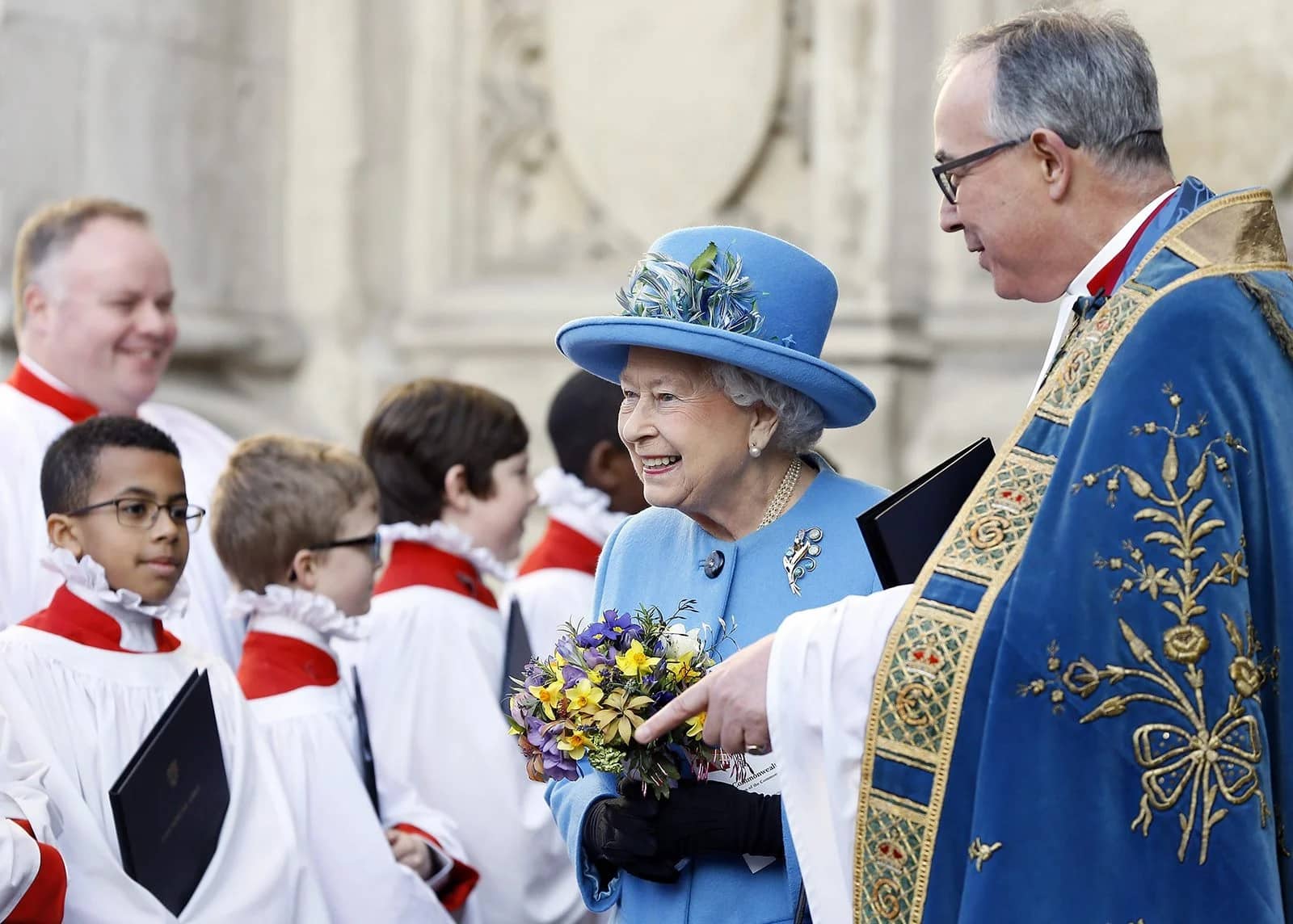
On Thursday, Archbishop of Canterbury Justin Welby released a statement noting the “signs of a deeply rooted Christian faith” in the queen’s life: her courage even as she mourned her husband, Prince Philip, the Duke of Edinburgh, who died in April 2021; her reminders in the darkest days of the COVID-19 pandemic that darkness cannot overcome light; her service to “her people and her God.”
“As a faithful Christian disciple, and also Supreme Governor of the Church of England, she lived out her faith every day of her life. Her trust in God and profound love for God was foundational in how she led her life – hour by hour, day by day,” Welby wrote.
While Defender of the Faith has been an inherited title and little more, Elizabeth II embraced it and in recent years made it her own, speaking very openly about her faith and explaining how it provided the framework of her life.
She did this mostly through her annual Christmas message, a tradition begun by her grandfather, George V, in 1932, and continued by her father. Her early Christmas Day broadcasts were platitudinous — the holidays as an occasion for family was a frequent theme. In 2000, however, she spoke of the millennium as the 2,000-year anniversary of the birth of Jesus Christ, “who was destined to change the course of our history.”
She went on to speak very personally and frankly about her faith: “For me the teachings of Christ and my own personal accountability before God provide a framework in which I try to lead my life. I, like so many of you, have drawn great comfort in difficult times from Christ’s words and example.” Similar sentiments have been aired at Christmas ever since.

The queen led the nation at regular services honoring the war dead, or offering thanksgiving for her jubilees, but worship was not, for her, only a public show. She attended church regularly throughout her life and is said to have had an uncomplicated, Bible- and prayer-book-based faith.
That love of the Bible was something she shared with American evangelist Billy Graham, whom she invited to preach for her on several occasions. While the closeness the Netflix series “The Crown” suggested between them seems far-fetched, Graham’s son Franklin Graham said Thursday that the queen and his father shared a friendship that “was built on a shared love for Jesus Christ and belief in God’s Word.”
“My father said he found Queen Elizabeth ‘to be a woman of rare modesty and character,’ and made a pledge to pray for her and her family every day. He also appreciated how she often talked about Jesus Christ during her public addresses—there was never any question about where she placed her faith,” said Franklin Graham, who heads the Billy Graham Evangelistic Association and Samaritan’s Purse.
He added: “The Queen was a friend to my father, but more importantly, she was a true friend of the Christian faith. She will be profoundly missed.”
Elizabeth relied on the deans of Windsor — the clerics who run St. George’s Chapel at Windsor Castle — for spiritual solace.
Her husband and her son Charles, who succeeds her, always displayed a more intellectual curiosity about religion, including a great interest in both other Christian denominations and other faiths as Britain’s religious landscape became increasingly diverse.
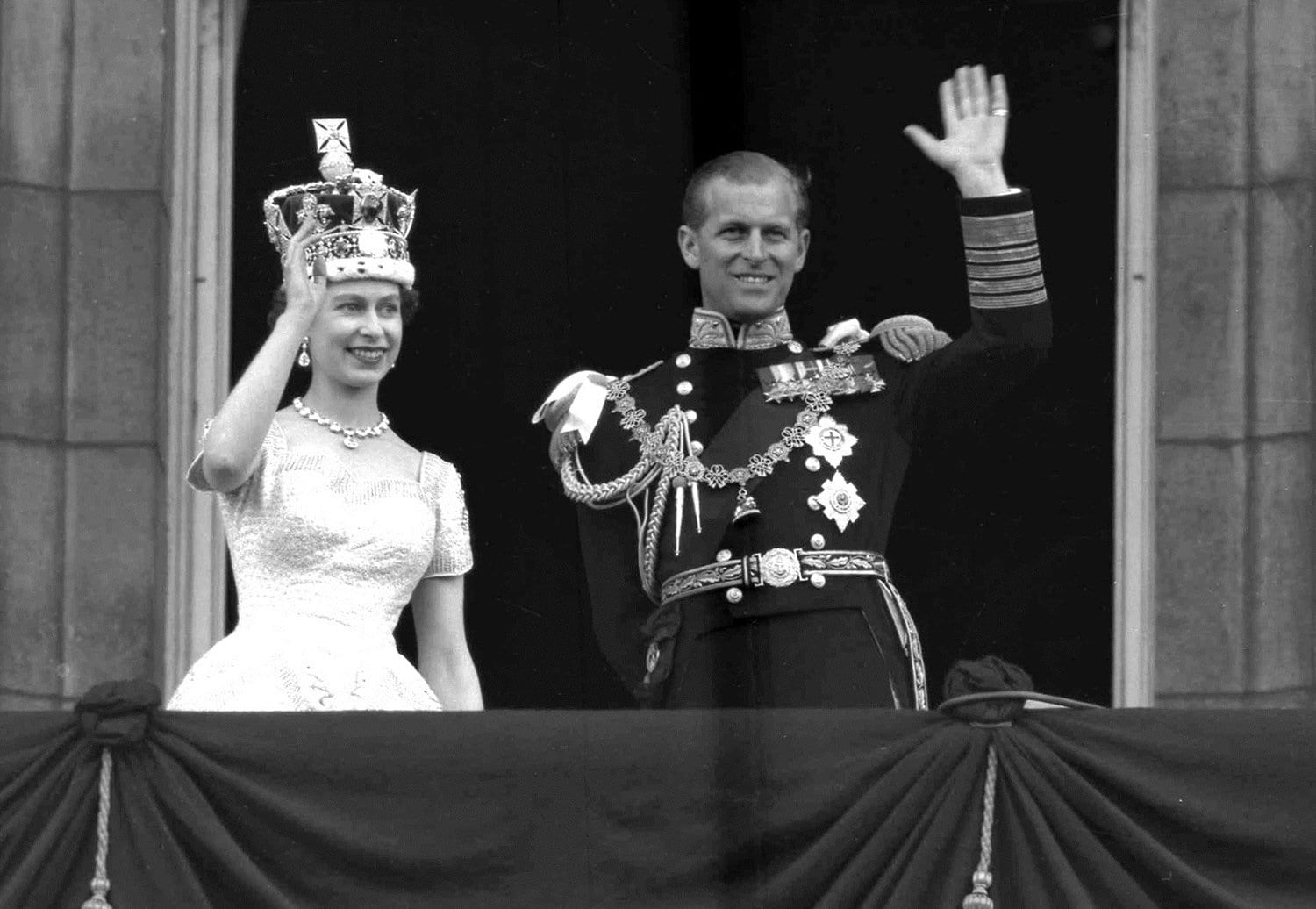
Elizabeth expressed an increasing openness as well. She encouraged members of all faiths to be present at great church occasions and in the annual Commonwealth Day service held at Westminster Abbey. She met five popes — a remarkable turnaround for a monarchy that once broke so spectacularly from Rome — though she never went so far as to ask other religious leaders to be a chaplain or offer other spiritual advice.
There has been talk of disestablishment of the Church of England, even in Anglican circles, although there has been little call for this from other faiths. But Elizabeth’s views seemed apparent when the queen spoke at Lambeth Palace in 2012, suggesting the Church of England might act as a sort of umbrella under which other faiths might shelter, saying Anglicanism “has a duty to protect the free practice of all other faiths in this country.”
At her Platinum Jubilee thanksgiving service at St. Paul’s Cathedral in London, in June, Buddhist and Jewish leaders were present alongside Anglicans and other Christians.
On Thursday, many religious leaders shared statements mourning the queen’s death.
In a telegram offering his condolences to Britain’s new monarch, King Charles III, Pope Francis reportedly wrote, “I willingly join all who mourn her loss in praying for the late Queen’s eternal rest, and in paying tribute to her life of unstinting service to the good of the Nation and the Commonwealth, her example of devotion to duty, her steadfast witness of faith in Jesus Christ and her firm hope in his promises.”
Presiding Bishop Michael Curry of the Episcopal Church, who spoke at the wedding of Prince Harry and Meghan Markle, said in a written statement he was praying for all those who knew and loved Elizabeth.
“Her resilience, her dignity, and her model of quiet faith and piety have been—and will continue to be—an example for so many,” Curry said.
Many figures of faith and the church will be among the dignitaries paying their respects at her lying in state at Westminster Hall and at her funeral at Westminster Abbey. According to plans outlined in Politico in 2021, she will be buried in the King George VI Memorial Chapel at Windsor Castle, outside London, after an Anglican service at St. George’s Chapel there.
National reporter Emily McFarlan Miller contributed to this report.




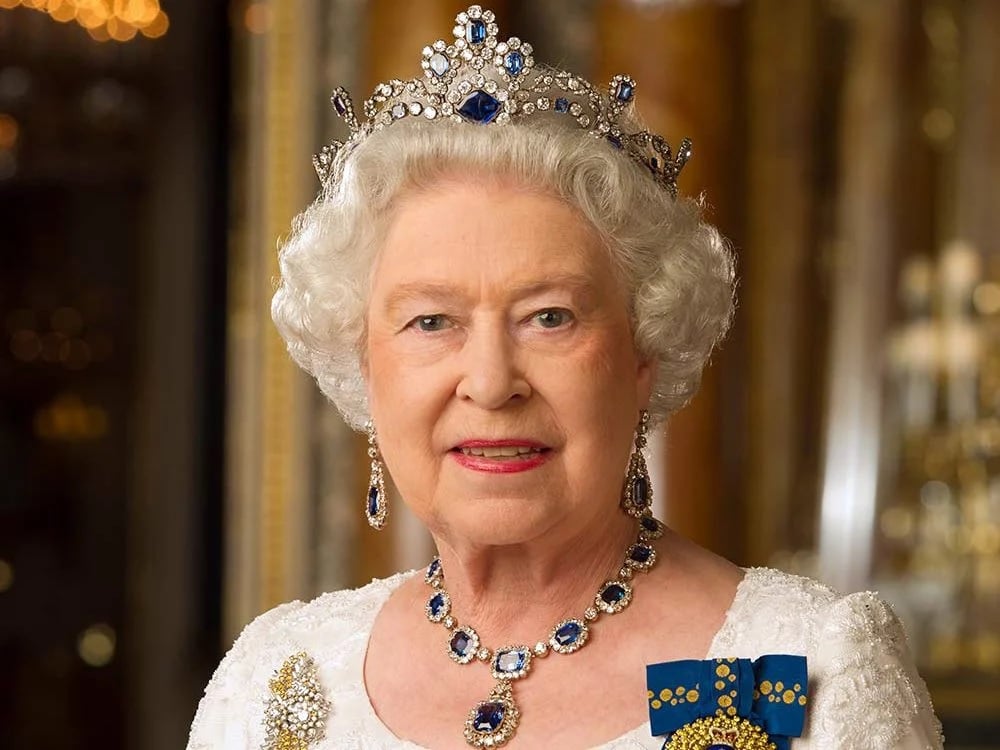
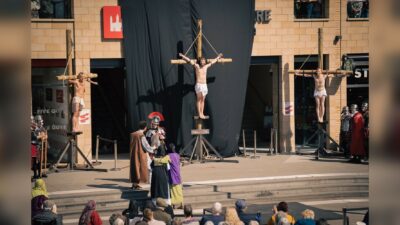

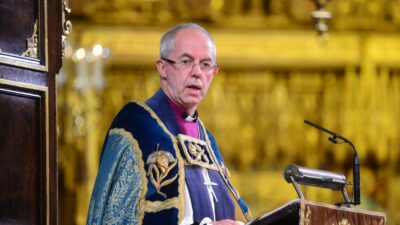


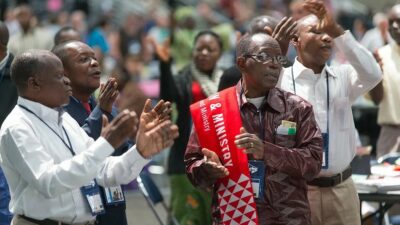

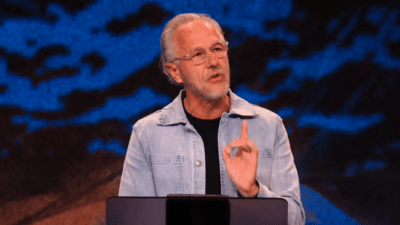







4 Responses
The Queen can be affectionately and respectfully experienced as an individual. However as the monarch she was simply a passive and unremarkable cog in a retrograde societal machine: a machine with a dark and bloody repressive history; a machine stultifying what Britain might be and become in an ever-changing world.
As an individual she was a constant, a presence, over a long period of constant change for Britain and the world. We have affection for her because of that. She was a beautiful young woman, on whom the responsibility of being Queen was too early placed.
The argument that she represented Jesus or Christ, certainly to a general British population, really cannot stand. The Church of England, from the time of Henry the Eighth, was a State Church, a secular device of societal and then Empire control.
Many then harbour deep concerns about many members of her immediate and extended Royal Family, including the now incumbent King, Charles. That something we should not allow the PR machine to hide.
Americans should look to their own precious values, rather than being drawn in by the PR hype.
Colin, you made several good points such as on state churches. I liked her. I’m an American whose American heritage still does allow much sympathy for our long-time English ally and of course our for English heritage. In the recent years, I came to really admire her dedication to her ongoing dignity carrying on her role of chief of state!
“Queen Elizabeth wore the crown for seven decades. Can the British monarchy survive without her?”
https://www.abc.net.au/news/2022-09-12/british-monarchy-after-queen-elizabeth/100287018?utm_campaign=abc_news_web&utm_content=link&utm_medium=content_shared&utm_source=abc_news_web
Seventy years is a long time, but still short of the record set by Pharoah Pepi II, who ruled during the Sixth Dynasty of Egypt’s Old Kingdom for 94 years.
All of this praise for her faith/accountability to God, but no mention of her giving Royal Assent to the 1967 Abortion Act, and why.